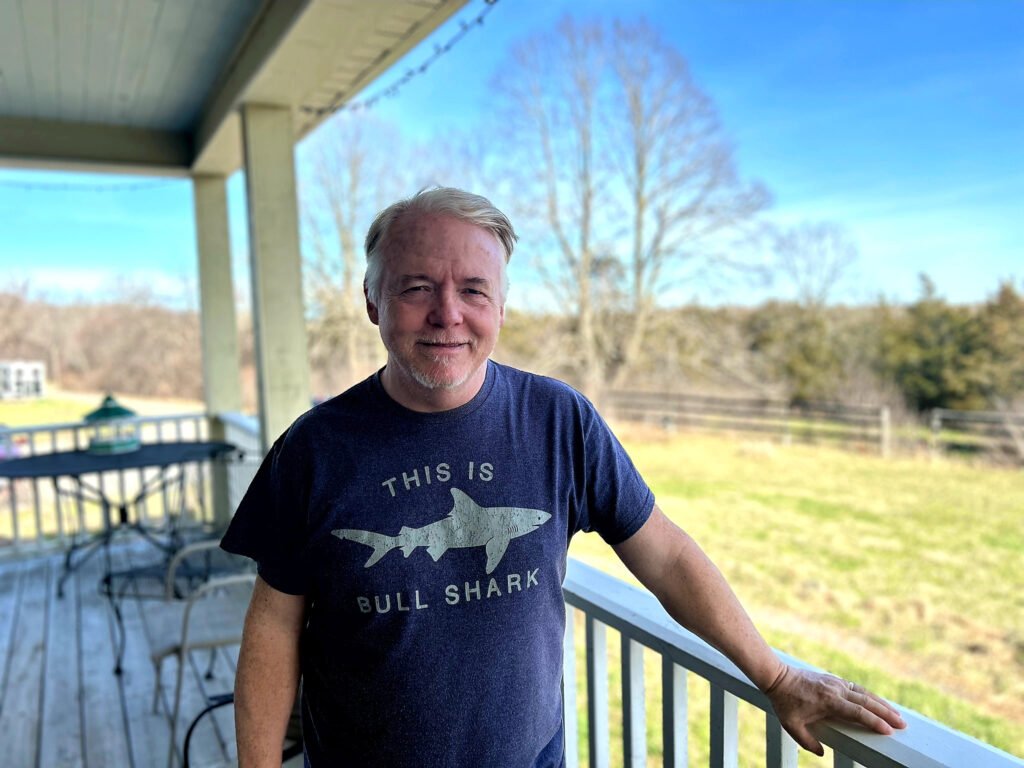Reading time: About two minutes
Thomas Harrison says that the first draft of any piece of writing is often terrible. “But it’s always easier to edit, and to polish a found diamond in the rough,” he adds.
Thomas Harrison is a teacher, lawyer and creative multi-disciplinary artist who lives on his family horse farm in Prince Edward County, Ontario. Thomas spent most of his time in legal practice as a policy Crown Council with Ontario’s Attorney-General. He currently teaches classes at Durham College in Animal Legislation and Ethics, and Animal Care Issues. When not writing, or wrangling horses, he paints and acts in local theatre, television and movies. His latest publication is Searching for Richard Nixon: Finding Refuge and Making a Home in Prince Edward County, a book framed by his investigation into the then-Vice-President’s secret 1957 visit to Picton and the Bay of Quinte in Ontario
I was excited to talk to Thomas about how he approaches writing.
Roughly how much time do you spend writing every day?
One to two hours (most days). When I’m in the middle of a project, this can increase significantly to four to six hours a day for short periods.
What’s a simple activity or habit that makes you a better writer?
Getting up early, and spending time drafting first thing in the morning.
What interferes with your writing?
I teach, so preparing classes and marking sometimes interferes. I also live on a horse farm, so there are always lots of chores to care for our 10 equines.
How do you persuade yourself to sit down to write on days when you really, really DON’T feel like doing it?
I try to plan to do it before I can get anxious about it – writing first thing in the morning. Sometimes I use the five-minute trick to overcome procrastination and anxiety that prevents me from starting: ‘Just write for that long and if you still want to stop you can,’ I tell myself. Once I get started, it’s lots easier to keep going.
Is there a particular motto or saying that you’ve found helpful for writing?
Writing is drafting. Good writing is revision. Great writing only rarely occurs without the first two.
Which stage of the writing process do you enjoy the most: researching, writing or editing/rewriting and why?
Researching. I have a tendency to go on tangents, but sometimes that’s the most interesting part of the process. In my creative non-fiction work, instead of killing my darlings, I often just put them in the endnotes!
What’s one of the best books you’ve read (either fiction or non) in the last five years?
On Foot to Canterbury by Ken Haigh – I defended this book and won at our local literary event, ‘The County Reads’, here in Prince Edward County, Ontario in 2022. It’s a braided story of history, memoir and travelogue, and was partly a model for my book Searching for Richard Nixon.
What book are you reading right now?
Agent Zigzag: A True Story of Nazi Espionage, Love and Betrayal by Ben McIntyre.
What do you think is the biggest misperception that new writers have about the act of writing?
That the first draft of any new piece of writing is often terrible. Many think if they don’t write golden words at first, they have to stop. Or try to re-write, right away. Continuing to write something to completion, even if it’s not perfect or polished, can be a genuine struggle. But it’s always easier to edit, and to polish a found diamond in the rough, than it is to try without some basic raw material.


